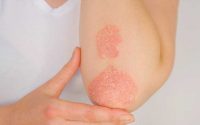Evaluating the findings of phase 3 clinical trial of plant-based COVID-19 vaccine
A recent article in the New England Journal of Medicine has presented the safety and efficacy profiles of a plant-based adjuvanted coronavirus disease 2019 (COVID-19) vaccine in human participants.

The vaccine comprises plant-derived coronavirus-like particles displaying the prefusion-stabilized, full-length spike protein of severe acute respiratory syndrome coronavirus 2 (SARS-CoV-2). The vaccine demonstrates 70% protective efficacy against symptomatic COVID-19 caused by different viral variants.
Background
Scientists have used a plant-based platform to produce the coronavirus-like particle vaccine. Many pre-existing viral vaccines that have been developed using the plant-based platform have shown considerable efficacy and immunogenicity. The expression of SARS-CoV-2 spike protein in plant (Nicotiana benthamiana) cells results in production of coronavirus-like particles (100-150 nm) displaying full-length prefusion-stabilized spike protein. After extraction and purification from the plant cells, these particles remain stable for at least 6 months at 2 to 8°C.
The coronavirus-like particles are further combined with the adjuvant system 03 (AS03), which has previously been shown to induce strong innate immune response and increase the robustness and durability of the adaptive immune response. In earlier studies, the vaccine has been found to induce a robust and durable neutralizing response and a balanced T cell response.
In the current phase 3, multicenter, multinational, randomized, placebo-controlled clinical trial, the scientists have tested the safety and efficacy of the vaccine.
Study design
The trial was conducted on a total of 24,141 adult participants. The participants were from 85 different locations in Argentina, Brazil, Canada, Mexico, the United Kingdom, and the United States. They were randomly assigned into two groups: the vaccine group and the placebo (control) group.
In the vaccine group, participants received two doses of the vaccine intramuscularly at an interval of 21 days. Similarly, the control participants received a placebo treatment. The trial primarily aimed to determine the vaccine efficacy in preventing symptomatic COVID-19 at least 7 days after the second vaccination. The safety profile of the vaccine was also assessed in the trial.
Important observations
A total of 165 laboratory-confirmed COVID-19 cases were identified in the entire study population. The whole-genome sequencing data confirmed that these cases were caused by five different variants of SARS-CoV-2, including alpha, gamma, delta, mu, and lambda variants.
Of all enrolled participants, 12,074 received the vaccine and 12,067 received the placebo. A total of 11,234 participants received two doses of the vaccine and continued the trial on day 42. Similarly, a total of 9897 participants received two doses of the placebo and continued the trial on day 42.
Because of specific reasons, some participants discontinued after day 42. Thus, the final analysis was conducted on 10,554 vaccine-group participants and 9,536 placebo-group participants.
Vaccine efficacy
Considering all study participants irrespective of the initial serostatus (anti-SARS-CoV-2 antibody status), the vaccine efficacy against symptomatic COVID-19 was estimated to be 69.5%.
The vaccine efficacy against symptomatic COVID-19 was around 68.9% in healthy adults aged less than 65 years. In participants with comorbidities, the efficacy was around 79%.
The overall vaccine efficacy against moderate-to-severe COVID-19 was around 78.8%. Among seronegative participants (those without detectable anti-SARS-CoV-2 antibodies at baseline), the efficacy against the moderate-to-severe disease was 74%.
The variant-specific vaccine efficacy was estimated among participants with confirmed COVID-19. The overall vaccine efficacy estimates against the alpha, mu, and lambda variants were 100%. Against the gamma and delta variants, the efficacy estimates were 87% and 74%, respectively. Further analysis revealed that the average viral load in the vaccine group is lower by a factor of more than 100 than that in the placebo group.
Vaccine safety
Regarding solicited adversities, about 92% of participants in the vaccine group and 45% of participants in the placebo group reported local adverse events after the first and second vaccination. The systemic adverse events were reported by 87% and 65% of participants in the vaccine and placebo groups, respectively.
In both groups, the most common local adversity was pain at the injection site. The most common systemic adversities were headache, myalgia, fatigue, and general discomfort. About 2.1% and 0.1% of vaccine-group participants and placebo-group participants reported severe local adverse events after the second vaccination, respectively. Similarly, severe systemic adverse events were reported by 3.1% and 0.5% of participants, respectively.
Regarding unsolicited adversities after the first and second vaccination, the number of reports was slightly higher in the vaccine group compared to that in the placebo group. No vaccination-related deaths occurred during the study period.
Study significance
The study describes the safety and efficacy profiles of the first plant-based COVID-19 vaccine that has received approval for human use. The vaccine shows high efficacy in preventing both symptomatic and severe COVID-19. Moreover, the vaccine is well-tolerated in the study population.
- Hager KJ. (2022). Efficacy and Safety of a Recombinant Plant-Based Adjuvanted Covid-19 Vaccine. The New England Journal of Medicine. doi: 10.1056/NEJMoa2201300 https://www.nejm.org/doi/10.1056/NEJMoa2201300
Posted in: Medical Science News | Medical Research News | Disease/Infection News
Tags: Antibodies, Antibody, Cell, Clinical Trial, Coronavirus, Coronavirus Disease COVID-19, covid-19, Efficacy, Fatigue, Genome, Headache, Immune Response, Laboratory, Medicine, Pain, Placebo, Protein, Respiratory, SARS, SARS-CoV-2, Severe Acute Respiratory, Severe Acute Respiratory Syndrome, Spike Protein, Syndrome, Vaccine, Whole Genome Sequencing

Written by
Dr. Sanchari Sinha Dutta
Dr. Sanchari Sinha Dutta is a science communicator who believes in spreading the power of science in every corner of the world. She has a Bachelor of Science (B.Sc.) degree and a Master's of Science (M.Sc.) in biology and human physiology. Following her Master's degree, Sanchari went on to study a Ph.D. in human physiology. She has authored more than 10 original research articles, all of which have been published in world renowned international journals.
Source: Read Full Article


